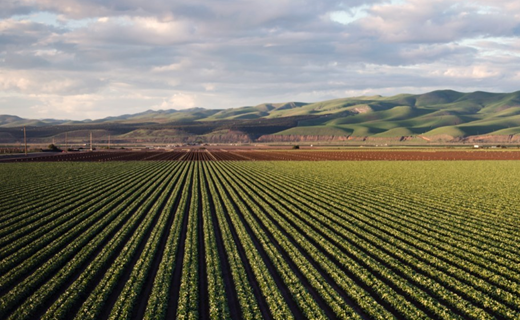- Candidates
- Login
- Set Up Account
- Create a Job Alert
- Search Tools
- Resources
- Employers

By Beren Goguen, Colorado State University Online
Across the globe, scientists, engineers, conservationists, and grassroots activists strive to find solutions for increasing losses in our planet’s biodiversity and depleting resources.
According to a recent UN report, our global ecosystems continue to decline at unprecedented rates and approximately 1 million animal and plant species face possible extinction.
The agricultural industry plays a pivotal role in this unfolding story.
Agriculture feeds every nation on earth yet threatens the long-term sustainability of our natural resources. A few notable findings in the UN report include:
Sustainability by the numbers – It doesn’t look good
The world's population continues to creep towards 8 billion people and may exceed 10 billion by 2100.
Fires, agricultural practices, and other human activities destroyed 17% of the Amazon rainforest in the last 50 years alone, as reported by the World Wildlife Fund.
Urban development, transportation, farming, and other factors continue accelerating global biodiversity decline, with one fifth of terrestrial vertebrates now threatened with extinction, according to Nature. Without serious changes to the way we use land, 3.35 million square kilometers of natural habitat could be lost between 2010 and 2050.
We must implement comprehensive strategies to reduce our carbon output and sustain our land, water, and natural ecosystems, or face the disastrous impact of a growing population and changing climate.
But we still have time to alter course.
From local policies to global impact
The UN report emphasizes the need for several necessary policy tools and strategies, including:
Some agricultural organizations already implement these strategies at a local level, but many communities lack the resources needed to significantly improve sustainability. As more regions seek to adopt sustainable agriculture, our governments, universities, NGOs, and other organizations must work together to support and expand these initiatives.
The importance of education
The field of economics provides an ideal framework to help us better understand both environmental and natural resource issues. As both public and private organizations invest more in sustainable practices, demand for professionals with a blend of economic and natural resource management skills will increase.
If you're interested in developing the analytical tools to assess and manage natural resources – and help create policies to preserve them – check out Colorado State University’s online Bachelor of Science in Environmental and Natural Resource Economics. If you already have a bachelor’s degree, consider exploring CSU’s online Natural Resource Stewardship Master’s program.
Other professional development opportunities include:
Keep learning. Keep moving forward.